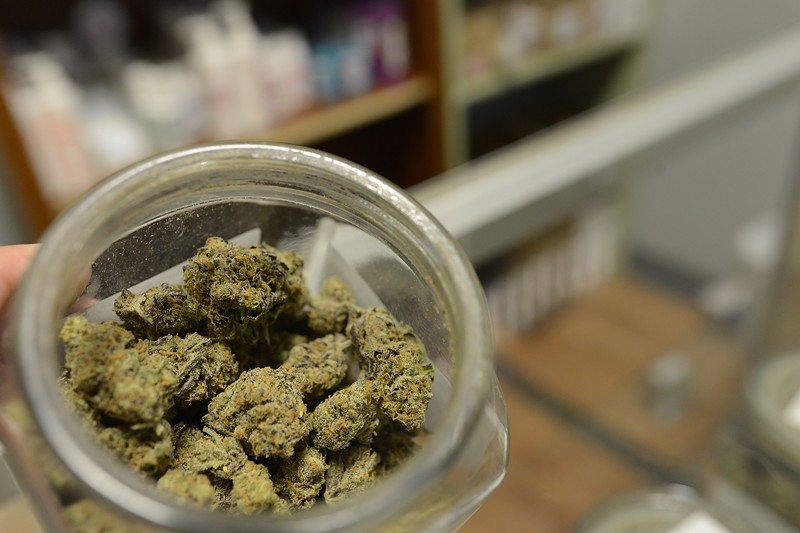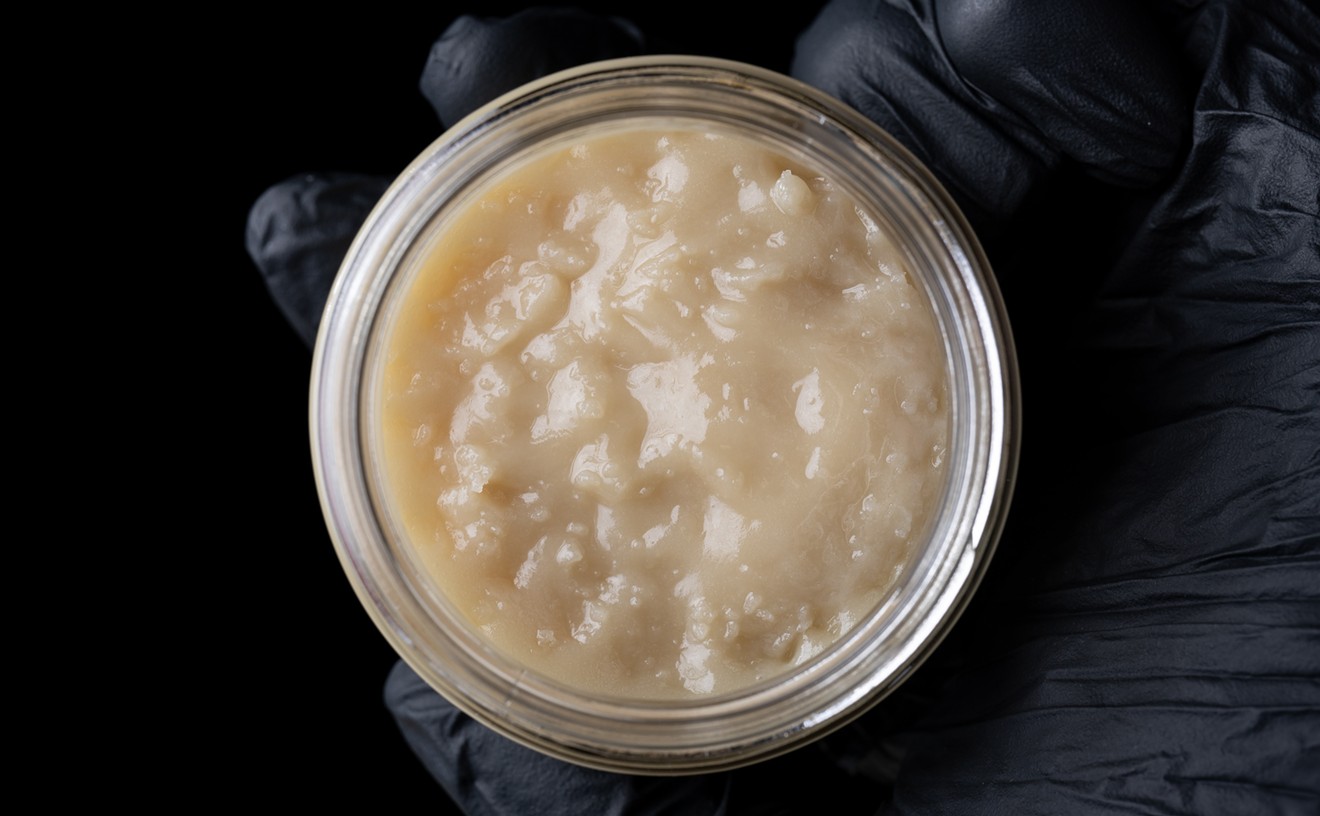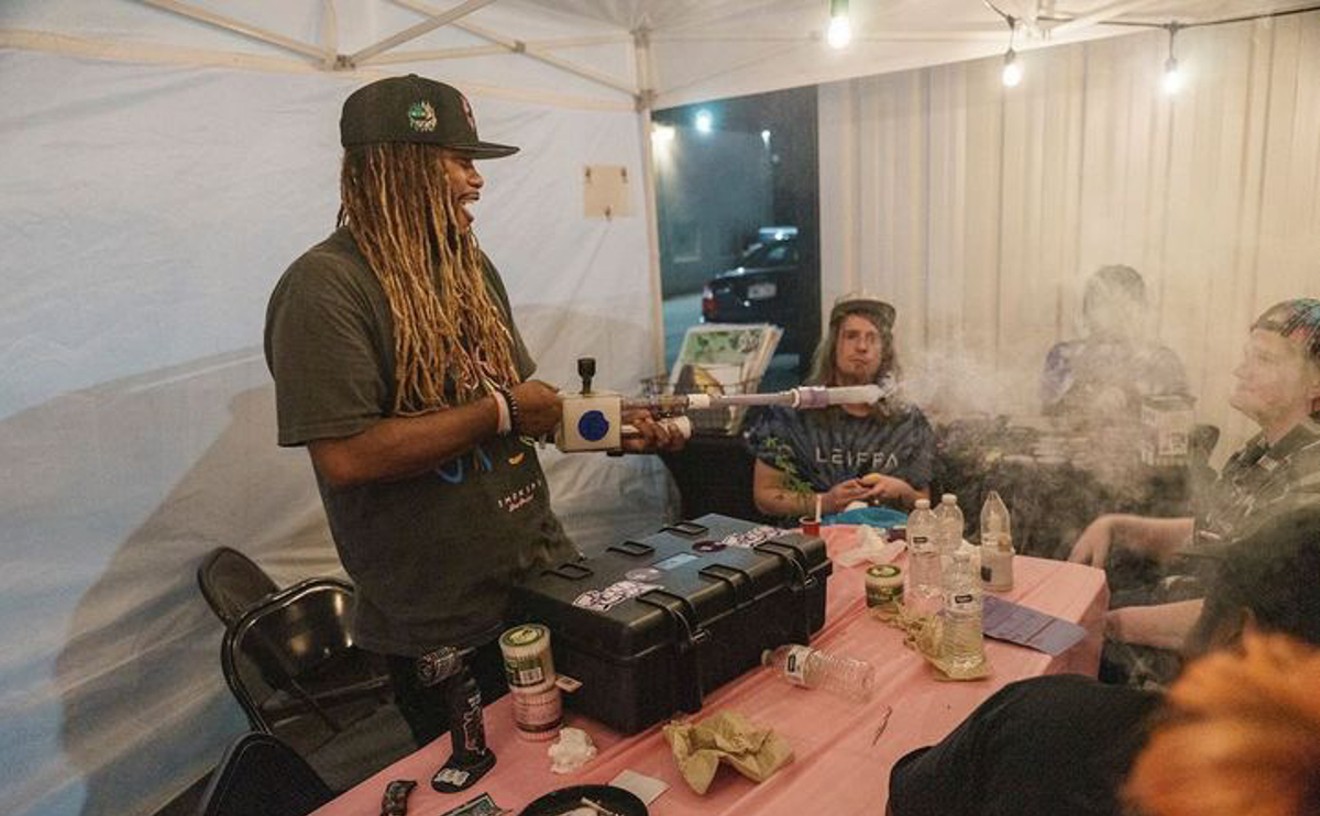Medical marijuana patients might have to pay almost double their current yearly registration fees as part of a handful of changes proposed by state officials to the Colorado Medical Marijuana Registry.
In March, the Colorado Board of Health will consider a proposal to hike annual application and renewal fees for medical marijuana patients from $29.50 to $52 a year. According to the state Department of Public Health and Environment, which oversees the Medical Marijuana Registry, the increase is necessary because the "current fee does not generate enough revenue to sustain the program."
The registry was set up to run on funding generated by patient applications, but the need to replace an "aging" online registration system requires a bump in fees, according to a January 16 CDPHE memo. And those who remain registered will have to carry a growing financial burden, because patient numbers are dropping fast.
Colorado's medical marijuana patient count peaked in 2011 at around 128,000, reports the CDPHE, which anticipated a gradual drop after recreational pot sales began in 2014. After an initial fall, the number held between 80,000 and 90,000 until late 2021. Since then, however, patient numbers have steadily declined; they were under 66,000 as of December.
By June 2024, registry officials estimate that only around 58,000 patients will be enrolled in the program — and that concerns Cannabis Clinicians Colorado director Martha Montemayor. A nonprofit organization that connects medical marijuana patients and health care professionals who are friendly to the plant, CCC monitors patient and doctor numbers throughout the state.
"The fact that we've lost 25 percent of the patients and we expect a 40 percent drop by 2030 is the real issue here," she says. "It's all from 2021, when [lawmakers] got rid of the medical program, basically. That is the drop, from these new rules."
When Colorado health professionals declared a state of emergency in youth mental health in 2021, they listed marijuana as one of several contributing factors to increases in mental illness and suicides among young people. Although youth use of marijuana in the state has remained flat since recreational legalization, use of extracted marijuana products has doubled since 2015; in 2021, around 8.8 percent of all Colorado high school students surveyed about marijuana admitted to using extracted THC products within the last month, according to CDPHE data. Most of these products are consumed by electronic and manual vaporization, also known as dabbing, and have been shown to impact developing brains in people 25 and under.
There is no data linking teenage medical marijuana patients to a spike in youth marijuana use, but stronger restrictions for medical marijuana access and concentrated THC products were pushed by lobbies representing parents, health-care organizations and anti-legalization groups at the start of the 2021 legislative session. That led to House Bill 1317; since it was passed and its provisions took effect, the number of registered medical marijuana patients ages eighteen to twenty went from nearly 3,500 to just over 1,000 in 2023, CDPHE data shows.
HB 1317 was "the single worst rollback of medical cannabis and patient rights" that Americans for Safe Access has seen in the country, according to a report from the cannabis policy reform group. In its most recent round of report cards for state medical marijuana programs, Colorado received an overall C+, with an F in the patient rights and civil protections category.
Patients who are still enrolled often struggle with the online application and renewal system, so Montemayor is in favor of some updates. She estimates the reading level of language on the current registry portal at "early college," while the average American reads at a seventh- or eighth-grade level.
"It's kind of like doing your taxes. If you read the instructions, you can get through it. The problem we have is that the reading level on the website and the reading level of the average patient are different," she explains. "There are definitely some changes that can be made to the system. It's not a simple system, and it's hard to update an application. But to punish patients now who are still on the registry for changes upcoming seven years in the future, I'm a bit concerned about that."
Registration fees were as high as $140 per year from 2001 to 2007 before reaching a low of $15 in 2014, Montemayor points out, though that doesn't include the cost of the doctor visit needed for a medical marijuana recommendation. While most people are able to meet even the higher fees, she says, they face a bigger challenge since the passage of HB 1317: finding a doctor willing to write a recommendation, especially if they don't live in the Denver area.
Although the CDPHE says around 400 health-care providers in Colorado recommend medical marijuana, Montemayor — citing a registry data request from CCC last summer— says it's actually closer to 230, and the number of health-care providers who write more than six recommendations per year is around 115.
"It's pretty tragic," she says. "This isn't necessarily a Colorado problem. This is a nationwide problem. We need more education for doctors."
Montemayor would like to see telemedicine appointments offered to disabled and homebound patients — a right that was granted by Governor Jared Polis in 2020, but that executive order expired in 2021 — as well as a more cohesive operating system for medical and recreational dispensaries in Colorado. Currently, patients can only buy certain medical marijuana products and pay lower tax rates for their medication at dispensaries permitted for medical sales. As medically licensed dispensaries across Colorado close or instead pursue recreational sales, Montemayor and CCC want patients to be able to buy their products at lower tax rates at any dispensary in the state.
Both of these changes would require statutory approval, though, and Montemayor isn't optimistic about the medical marijuana community's pull at the Colorado Capitol anymore; bills that would have legalized medical marijuana telemedicine appointments failed in 2021 and 2023.
"There is no political will at this time to continue helping marijuana patients in Colorado," she says, "but I'm hopeful for the future, and that we will get some new ideas in the legislature."
[
{
"name": "Air - MediumRectangle - Inline Content - Mobile Display Size",
"component": "12017618",
"insertPoint": "2",
"requiredCountToDisplay": "2",
"watchElement": ".fdn-content-body",
"astAdList": [
{
"adType": "rectangle",
"displayTargets": "mobile"
}
]
},{
"name": "Editor Picks",
"component": "17242653",
"insertPoint": "4",
"requiredCountToDisplay": "1",
"watchElement": ".fdn-content-body",
"astAdList": [
{
"adType": "rectangle",
"displayTargets": "desktop|tablet"
},{
"adType": "rectangle",
"displayTargets": "desktop|tablet|mobile"
}
]
},{
"name": "Inline Links",
"component": "18838239",
"insertPoint": "8th",
"startingPoint": 8,
"requiredCountToDisplay": "7",
"maxInsertions": 25
},{
"name": "Air - MediumRectangle - Combo - Inline Content",
"component": "17261320",
"insertPoint": "8th",
"startingPoint": 8,
"requiredCountToDisplay": "7",
"maxInsertions": 25,
"watchElement": ".fdn-content-body",
"astAdList": [
{
"adType": "rectangle",
"displayTargets": "desktop|tablet"
},{
"adType": "rectangle",
"displayTargets": "desktop|tablet|mobile"
}
]
},{
"name": "Inline Links",
"component": "18838239",
"insertPoint": "8th",
"startingPoint": 12,
"requiredCountToDisplay": "11",
"maxInsertions": 25
},{
"name": "Air - Leaderboard Tower - Combo - Inline Content",
"component": "17261321",
"insertPoint": "8th",
"startingPoint": 12,
"requiredCountToDisplay": "11",
"maxInsertions": 25,
"watchElement": ".fdn-content-body",
"astAdList": [
{
"adType": "leaderboardInlineContent",
"displayTargets": "desktop|tablet"
},{
"adType": "tower",
"displayTargets": "mobile"
}
]
}
]












